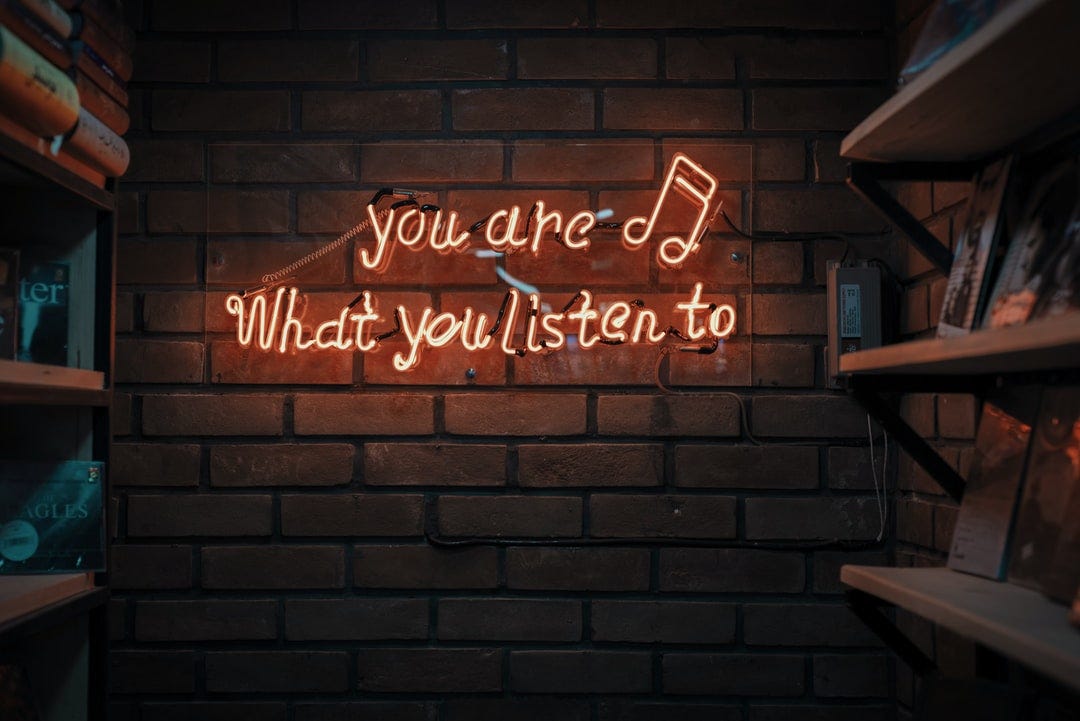We can learn something from any conversation. By listening more. By listening better.
No one ever listened his way out of a job. – Calvin Coolidge
Over the past year, I've been trying to introspect more and be a lot more observant of myself. It is exhausting, as it is not second nature. But that's how habits are built (I think).

One thing I do a bit better than last year, and can do a whole lot better is listening. I realise I make 2-3 mistakes when it comes to listening.
I am thinking of a response even as the other person is finishing a sentence. To prolong the conversation, to say something witty. Or whatever. I've stopped listening fully.
I know what the other person is going to say, and I just want to answer the question. This reflects my impatience, and this happens mostly when I am asked a technical question about fitness/nutrition. Most of us have the same issues, make the same mistakes and I've seen it 1000s of times. So, when someone starts talking about their issue, in my role as a coach, I am trying to help them solve it.
An idea strikes based on what I heard, and I start exploring it in my head. And I've stopped listening. While this does not sound as terrible, it is. Because as far as listening goes, I've stopped listening.
I am sure there are quite a few more, but these are repeating patterns that I make.
#1 is just silly. Nothing more to think about there.
#2 bleeds over quite a bit into other aspects of life and that's a hard one. Switching roles in my head is needed. As weird as it sounds, Coach AA vs Arvind is how I am trying to figure it out. There are times when I am a coach, and there are times when I am not. For example, when a friend is explaining an issue, I am not there to solve it for them. I just need to listen. Knowing what role to play there is key.
On #3, it is as simple as taking notes.
I've always been a bit impatient and get quite frustrated when someone does not get what I am trying to say. I realise that clarity of communication is how I solve that one.
The germ of solving this came last November with a simple listening exercise which occurred as part of a workshop that Raj and I did. One person talks for 15 minutes. The other shuts up. That's it. Sounds absurdly simple.
What we realised was
the person talking will explain more and explain better, as long as they are allowed the time and the space.
the person talking has probably thought of that idea in my head, and will get to it in their own time.
any question I might have - well, it will be answered if I just continue listening.
all silly listening/non-listening patterns were suspended.
The first step is awareness, and we can go a long way just based on that. While I still make the mistakes I've mentioned here, I make them lesser than I used to. And when I do make them, I can go back and rectify it as well. Previously, I was just oblivious.
I highly recommend and encourage you to try this out. Next time someone has an idea or wants to share their day or an incident with you, here's your job.

Don't zone out. Actively listen.
Don't opine or talk. Don't even say "yes". How will the other person know you are listening - see #1.
It need not be 15 minutes. It could be 5 minutes. But give them the entirety.
Take notes if needed.
There are probably more rules, and you can figure it out once you do this. You'll find your patterns, and you can work on them. Mine is just an example for you to make sense of the abstract of.
I've used this for conversations with my wife, when chatting with students, and wherever possible. Even if you get excited and want to jump in and agree or whatever, just hold your horses. It will make sense.
Like I said, I still miss out and make mistakes. But that's okay. Over the past 2 weeks, I've forgotten these basic lessons and just writing these down has made me re-affirm what I want to do - be a better listener.
A wonderful talk to help you get thinking about conversations is shared below. But my suggestion is to do the drill, rather than diving into "more research". You don't need to listen to 20 related talks, buy 2 books, and listen to 7 podcasts. Do! Do the drill. Start.

